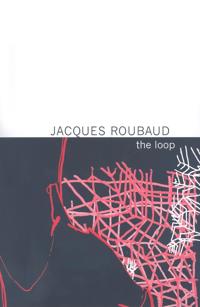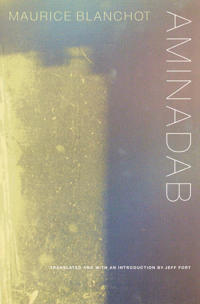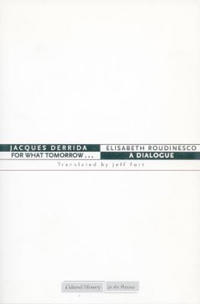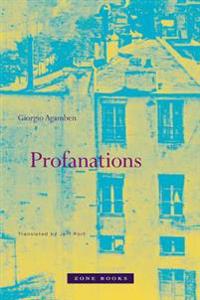The Imperative to Write (Inbunden)
avJeff Fort
ISBN: 9780823254699 - UTGIVEN: 2014-04Is writing haunted by a categorical imperative? Does the Kantian sublime continue to shape the writer's vocation, even in twentieth century authors who seem far removed from the grand rewards of Reason and the purity of the Supersensible? And what precise shape, form or figure does this residue of s[...]
Aminadab (Pocket)
avMaurice Blanchot, Jeff (TRN) Fort, Jeff (INT) Fort
ISBN: 9780803261761 - UTGIVEN: 2002-04The world of Aminadab, Maurice Blanchot's second novel, is dark, bizarre, and fantastic. Reminiscent of Kafka's enclosed and allegorical spaces, Aminadab is both a reconstruction and a deconstruction of power, authority, and hierarchy. The novel opens when Thomas, upon seeing a woman gesture to him [...]
For What Tomorrow (Pocket)
avJacques Derrida, Elisabeth Roudinesco, Jeff (TRN) Fort
ISBN: 9780804746274 - UTGIVEN: 2004-06"For what tomorrow will be, no one knows," writes Victor Hugo. This dialogue, proposed to Jacques Derrida by the historian Elisabeth Roudinesco, brings together two longtime friends who share a common history and an intellectual heritage. While their perspectives are often different, they have many [...]
Profanations (Pocket)
avGiorgio Agamben, Jeff (TRN) Fort, Giorgio Agamben
ISBN: 9781890951832 - UTGIVEN: 2015-02The Italian philosopher Giorgio Agamben has always been an original reader of texts, understanding their many rich historical, aesthetic, and political meanings and effects. In Profanations, Agamben has assembled for the first time some of his most pivotal essays on photography, the novel, and film.[...]







